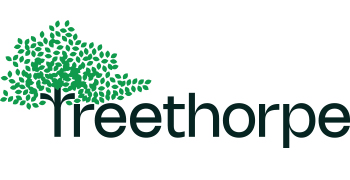New UK Legislation Opens Doors for Irish Heritage: The British Nationality (Irish Citizens) Act 2024

A Game-Changer for Genealogy Research and Family History
For genealogists and family historians tracing Irish ancestry, July 22, 2025, marked a significant milestone. The British Nationality (Irish Citizens) Act 2024 came into force, creating new opportunities for those with Irish heritage to establish formal connections to their ancestral homeland through British citizenship.
What Does This New Act Mean?
The British Nationality (Irish Citizens) Act 2024 provides for a new mode of acquisition of British citizenship for Irish citizens resident in the United Kingdom. It provides for registration by entitlement as a British citizen on application, significantly simplifying the path to dual citizenship.
This legislation represents a departure from previous requirements, easing the route to British citizenship as it has fewer of the requirements imposed on those seeking to naturalise as British citizens under the British Nationality Act 1981.
Why This Matters for Genealogy Research
The Act’s implications extend far beyond simple citizenship acquisition. For family historians, this legislation creates several important opportunities:
Enhanced Research Access
British citizenship can provide greater access to UK records, archives, and genealogical resources. Many historical documents and family records held in British institutions become more accessible to citizens, potentially unlocking new avenues for research.
Simplified Documentation Process
The provision for assertion of British subject status for persons born in what is now the Republic of Ireland prior to 1949 (when it was Eire) is thought to have been little used. This new Act provides a clearer, more straightforward path for establishing formal connections to British heritage.
Family Reunification Benefits
For families spread across Ireland and the UK, this legislation can help establish unified citizenship status, making it easier to trace family connections and maintain genealogical records across both jurisdictions.
Understanding the Historical Context
The relationship between British and Irish nationality law has always been complex. Since April 1949, Irish citizens who were born and raised in the Republic of Ireland have no longer been automatically considered as British subjects (unlike Irish citizens born and raised in Northern Ireland).
The ambition of matching the ease with which the people of Northern Ireland may obtain Irish citizenship was a driving force behind this legislation, creating greater parity in citizenship access across the British Isles.
Practical Implications for Genealogists Document Authentication
The new Act may streamline the process of authenticating historical family documents, particularly those predating Irish independence. British citizenship could provide official recognition that helps validate family connections.
Cross-Border Research
With simplified citizenship processes, researchers can more easily access records on both sides of the Irish Sea, creating opportunities for more comprehensive family trees and historical research.
Professional Opportunities
There may be countries around the World where being a British citizen offers advantages under local immigration rules, potentially benefiting genealogists who travel internationally for research purposes.
The Broader Data Protection Context
This citizenship development coincides with other significant UK legislative changes. The Data (Use and Access) Act 2025 was enacted on June 19, 2025, with amendments clarifying what amounts to processing for the purposes of ‘scientific research,’ ‘historical research,’ and ‘statistical purposes’.
These data protection changes could also benefit genealogical research by clarifying that scientific research can include commercial research, including where such research is privately funded, potentially making it easier for professional genealogists and family history researchers to access and use historical data.
Looking Forward
The implementation of the British Nationality (Irish Citizens) Act 2024 represents more than just a change in citizenship law — it’s a recognition of the deep, intertwined history between Ireland and Britain that continues to shape family stories today.
For genealogists and family historians, this legislation opens new doors for research, documentation, and understanding of Irish-British family connections. As the Act becomes fully operational, we expect to see increased interest in Irish genealogy research and a corresponding growth in cross-border family history projects.
Whether you’re researching your own family tree or working with professional genealogists, this new legislation provides important tools for establishing and documenting Irish heritage connections. The new route of citizenship process may also encourage more people to explore their Irish roots, potentially leading to new discoveries and family connections.
Next Steps for Researchers
Considering researching your own Irish ancestry? Start by gathering any family documents, birth certificates, marriage records, or stories passed down through generations. Online resources like the Irish National Archives and the General Register Office can provide valuable starting points for your research.
Need expert assistance with complex genealogical research? Professional genealogists and forensic researchers specialise in tracing family connections, uncovering forgotten assets, and establishing legal documentation of heritage. This is particularly valuable when dealing with the intricate requirements of citizenship applications or when family records are incomplete or difficult to locate.
At Treethorpe, our team of forensic research specialists has extensive experience in Irish genealogy and cross-border family history research. We understand the complexities of Irish-British family connections and can help you navigate both the genealogical research and the legal implications of the new citizenship legislation.
Whether you’re looking to establish citizenship eligibility, trace lost family connections, or uncover forgotten family assets, professional genealogical research can provide the expertise and resources needed to achieve your goals.
Ready to discover your family’s story? Contact our specialist team to discuss how we can help you explore your Irish heritage and take advantage of the opportunities created by this landmark legislation.



